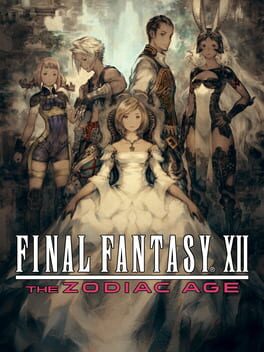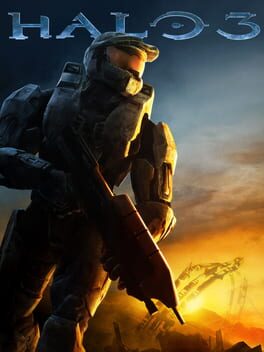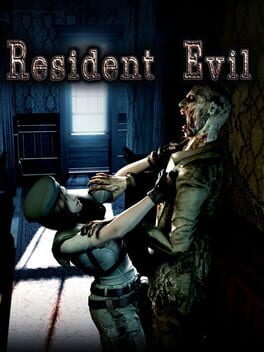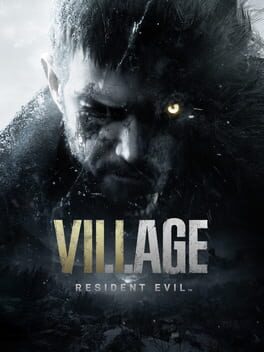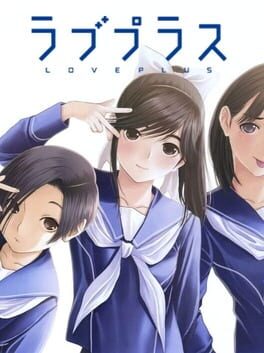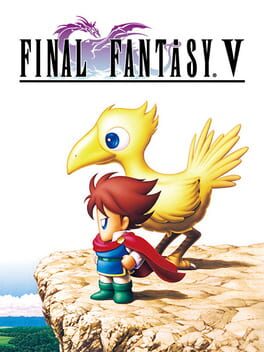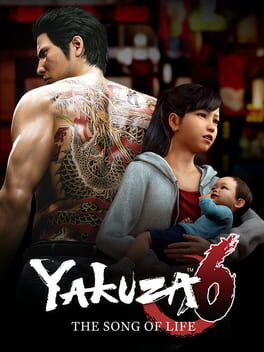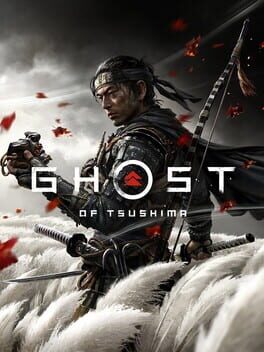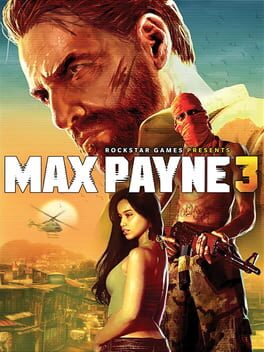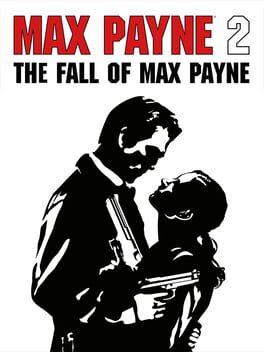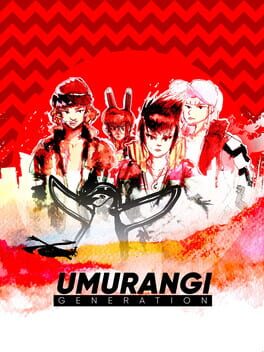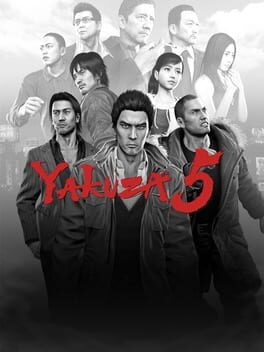MarioBalls
It’s always saddened me that FFXII isn’t talked about very often. It’s one of my favourite FF games and maybe one of my favourite RPGs.
The zodiac job system offers a dizzying degree of customisation, greatly rewarding those willing to plunge into its depths. A lot of people seem to dislike the more passive combat, but when you finally figure out good builds and gambit loadouts to compliment those builds, watching your strategy succeed is so satisfying.
The Ivalice setting is as well realised as it always is. The writing is far more subdued than typical FFs and features another great localisation by Alexander O. Smith. I’ve seen a lot of people say it’s boring; I love it, personally. I can’t deny it does get much weaker towards the end; its development troubles end up being quite apparent. And I do agree that Vaan and Penelo are bad.
Love Hitoshi Sakimoto’s cinematic soundtrack. Love the detailed towns. Love the voice acting. Love the cutscene direction (much like Vagrant Story, a game developed by a lot of the same key players as FFXII, it has better cutscene direction than most FF games). Love this game.
The zodiac job system offers a dizzying degree of customisation, greatly rewarding those willing to plunge into its depths. A lot of people seem to dislike the more passive combat, but when you finally figure out good builds and gambit loadouts to compliment those builds, watching your strategy succeed is so satisfying.
The Ivalice setting is as well realised as it always is. The writing is far more subdued than typical FFs and features another great localisation by Alexander O. Smith. I’ve seen a lot of people say it’s boring; I love it, personally. I can’t deny it does get much weaker towards the end; its development troubles end up being quite apparent. And I do agree that Vaan and Penelo are bad.
Love Hitoshi Sakimoto’s cinematic soundtrack. Love the detailed towns. Love the voice acting. Love the cutscene direction (much like Vagrant Story, a game developed by a lot of the same key players as FFXII, it has better cutscene direction than most FF games). Love this game.
2007
I think this is the Halo formula perfected. Halo 1 & 2, as great as they are, are host to some pretty severe problems, I would argue. Those problems are almost completely ironed out in 3. I never really get the feeling that they were running short on time and/or money like with the first 2 games. It feels very complete. It’s very well paced. There’s a nice variety of set-pieces. There’s much less flood fighting. It has one of the best soundtracks. It’s so fucking good.
2002
This is one of my favourite looking games. The pre-rendered backgrounds are perfect and all the camera angles are beautifully composed. Thankfully, everything else about the game is great as well. I generally feel pretty strong disdain towards remakes and even I love this game. About as close to perfect as a classic survival horror game can be.
I would say that like 90% of why I like this game is the art direction. I love grimy, slimy, sweaty, dirty ass aesthetics like this. Real Texas Chainsaw Massacre vibes with this game’s visuals. It’s a strong contender for my favourite RE art-wise. It’s also the most grotesque RE by far, which I love.
I think the first half of the game captures the spirit of classic RE relatively well. I really like it. I can’t quite explain why, but the second half is a lot less interesting to me.
I love the tone, too. Quite Evil Dead-esque.
A nice return to form after 6, if not as good as it could be.
I think the first half of the game captures the spirit of classic RE relatively well. I really like it. I can’t quite explain why, but the second half is a lot less interesting to me.
I love the tone, too. Quite Evil Dead-esque.
A nice return to form after 6, if not as good as it could be.
2019
I don’t dislike this game, however I don’t love it like most people seem to.
I recall not being a big fan of the way the game looks, in particular how dark it is. I don’t really know how to explain it; the darkness felt like more of a nuisance than something that enhances the spook factor. And it’s pretty washed out, too. Not terribly pleasing to look at.
Mr. X is pretty easy to just run around or away from; he’s too slow to be a much of a threat, and his omnipresence just makes him bothersome to deal with. I think the way he moves fast in unloaded rooms and whatnot is a little annoying too.
I think the separate campaigns are extremely under-utilised. The zapping system from the original isn’t expanded upon at all, and the B run gives rise to a ton of continuity errors. Continuity between the two campaigns was also questionable in the original, but there was enough differentiation between them to distract from it. Here, you don’t even get different boss fights until the end. And the new playable Ada and Sherry sections I found rather mundane.
I’m not too sure how to feel about zombies being able to follow you into other rooms. I know it was a thing in RE1 Remake; it happened so rarely though, so when it did happen it was a genuine shock. It happens all the time in 2 Remake and it sorta felt like I was unintentionally being discouraged from exploration. (This is definitely something I’d have to experience again—perhaps I’d like it now.)
It’s the music in RE2 Remake that’s possibly the greatest transgression. The original’s perfect soundtrack is almost completely scrapped in favour of one that’s so low key, it might as well not be there at all. As such, the game is sorely lacking in atmosphere. The most frustrating part is that the new, late game action tracks are fucking excellent; why couldn’t the rest of the soundtrack be as good?
For positives: I think the first few hours (from arriving at the police station, to the car park after the first Birkin fight) are fantastic, my qualms with the darkness and the OST aside. I’m still very sore about not having a fixed camera and pre-rendered backgrounds, but if it absolutely has to be third-person, the first few hours are about as close to a classic survival horror experience I could hope for from a modern game. Those first hours, the sewer, and the lab all excel at almost everything that survival horror should.
I recall not being a big fan of the way the game looks, in particular how dark it is. I don’t really know how to explain it; the darkness felt like more of a nuisance than something that enhances the spook factor. And it’s pretty washed out, too. Not terribly pleasing to look at.
Mr. X is pretty easy to just run around or away from; he’s too slow to be a much of a threat, and his omnipresence just makes him bothersome to deal with. I think the way he moves fast in unloaded rooms and whatnot is a little annoying too.
I think the separate campaigns are extremely under-utilised. The zapping system from the original isn’t expanded upon at all, and the B run gives rise to a ton of continuity errors. Continuity between the two campaigns was also questionable in the original, but there was enough differentiation between them to distract from it. Here, you don’t even get different boss fights until the end. And the new playable Ada and Sherry sections I found rather mundane.
I’m not too sure how to feel about zombies being able to follow you into other rooms. I know it was a thing in RE1 Remake; it happened so rarely though, so when it did happen it was a genuine shock. It happens all the time in 2 Remake and it sorta felt like I was unintentionally being discouraged from exploration. (This is definitely something I’d have to experience again—perhaps I’d like it now.)
It’s the music in RE2 Remake that’s possibly the greatest transgression. The original’s perfect soundtrack is almost completely scrapped in favour of one that’s so low key, it might as well not be there at all. As such, the game is sorely lacking in atmosphere. The most frustrating part is that the new, late game action tracks are fucking excellent; why couldn’t the rest of the soundtrack be as good?
For positives: I think the first few hours (from arriving at the police station, to the car park after the first Birkin fight) are fantastic, my qualms with the darkness and the OST aside. I’m still very sore about not having a fixed camera and pre-rendered backgrounds, but if it absolutely has to be third-person, the first few hours are about as close to a classic survival horror experience I could hope for from a modern game. Those first hours, the sewer, and the lab all excel at almost everything that survival horror should.
This is my favourite RE since the series’ ‘revival’ with 7.
It has a lot of variety, satisfying progression and level design, great atmosphere (perfect winter game), some of my favourite art direction in the entire series, fun characters (Ethan is still pretty boring, though), one of the better modern RE soundtracks.
Elaborating upon what I like about it will take too long, and I’m in a lazy mood, so I’ll just say I love this one, and I hope it’s a sign of things to come for Resident Evil.
It has a lot of variety, satisfying progression and level design, great atmosphere (perfect winter game), some of my favourite art direction in the entire series, fun characters (Ethan is still pretty boring, though), one of the better modern RE soundtracks.
Elaborating upon what I like about it will take too long, and I’m in a lazy mood, so I’ll just say I love this one, and I hope it’s a sign of things to come for Resident Evil.
2009
I’m very much a stranger to dating sims. I went into this one attracted mostly by my fascination upon hearing that the characters were actually good, and that some dating sims are weirdly complex.
Love Plus isn’t really complex, but the first chunk of the game presents you with just enough mechanically; for better or worse, it won’t turn your brain into mush. And the characters are indeed quite well-developed, especially for something that could be interpreted as bait for desperate nerds.
I actually enjoyed that ‘first half’ of the game. Building your stats by planning out your day, and divvying up your time with each girl to learn more about them was a lot of fun. Once you finally do start dating one of the girls, however, I quickly lost interest, primarily because the game no longer gave me a clear goal to work towards—I like at least a little bit of railroading in more laid-back games like this.
This opinion may lead to some worrying implications about how I behave in relationships, but I swear I don’t feel this way in real life. You have to believe me.
Neat game. Not really for me. I may return to it someday. Who knows?
Love Plus isn’t really complex, but the first chunk of the game presents you with just enough mechanically; for better or worse, it won’t turn your brain into mush. And the characters are indeed quite well-developed, especially for something that could be interpreted as bait for desperate nerds.
I actually enjoyed that ‘first half’ of the game. Building your stats by planning out your day, and divvying up your time with each girl to learn more about them was a lot of fun. Once you finally do start dating one of the girls, however, I quickly lost interest, primarily because the game no longer gave me a clear goal to work towards—I like at least a little bit of railroading in more laid-back games like this.
This opinion may lead to some worrying implications about how I behave in relationships, but I swear I don’t feel this way in real life. You have to believe me.
Neat game. Not really for me. I may return to it someday. Who knows?
1992
The job system does most of the heavy lifting here. Builds aren’t as flexible as they would eventually become in 7, Tactics, 12 etc. though you can get pretty creative in 5; there’s still plenty to sink your teeth into.
I would say everything else is just varying degrees of decent.
The story is serviceable (with some funny moments peppered throughout, at least in the GBA localisation), the way it’s structured is perfectly adequate, the visuals are functional, and the music is good—sometimes great—albeit not quite up to the standard that Uematsu set for himself on many other games, and there also just isn’t enough of it; perhaps it’s to be expected for a SNES game, but you’ll encounter a ton of repeating tracks.
That’s about all I have to say about FF5. I like it. I’ll replay it some day.
I would say everything else is just varying degrees of decent.
The story is serviceable (with some funny moments peppered throughout, at least in the GBA localisation), the way it’s structured is perfectly adequate, the visuals are functional, and the music is good—sometimes great—albeit not quite up to the standard that Uematsu set for himself on many other games, and there also just isn’t enough of it; perhaps it’s to be expected for a SNES game, but you’ll encounter a ton of repeating tracks.
That’s about all I have to say about FF5. I like it. I’ll replay it some day.
2019
I was a little cautious going into P5R; not because of any preconceived notions about the game necessarily, but because it was hard for me to imagine improving upon P5 vanilla, at least in terms of gameplay.
Fortunately for me, Royal’s series of small gameplay improvements add up to make something that I think is somehow a good deal better than the vanilla version.
My biggest issues with P5 vanilla were all writing related, and sadly I don’t think much improvement has been made in that regard.
Some party members are still more-or-less benched in favour of others (Makoto gets so much to do, and I just don’t find her very interesting. The fabled ‘Atlus new girl syndrome’ I’ve heard about is also at play here, although I do kinda like her). Leading with the most despicable character in the game still robs the rest of the game of its weight. The game’s exploration of vigilantism flirts with the complexities of such subject matter—the morality of vigilantism and its ramifications—and then promptly forgets about said complexities, instead preferring an approach that’s very naïve. In the new third semester, they try to get a little more morally grey, but once again its exploration of the ideas it presents are quite simplistic.
Persona writing has always shined in its individual characters—explored through ‘Social Links’ and whatnot—and it’s still mostly fantastic here.
I think the level design could be a bit better, too. And all the hyper-contextual platforming linearises the levels a little too much for my liking. Also the grappling hook is pointless.
Everything else about Persona—the time limits, the life/dating sim elements, the combat, etc.—is as great as you expect; if you’ve played one, you get the deal by now.
It’s still not as good as P5 could be, but it’s about as good as it’s gonna get, and in this case, ‘as good as it’s gonna get’ actually means pretty amazing.
Edit: I forgot to mention Akechi is an edgy loser and I should be allowed to bully him.
Fortunately for me, Royal’s series of small gameplay improvements add up to make something that I think is somehow a good deal better than the vanilla version.
My biggest issues with P5 vanilla were all writing related, and sadly I don’t think much improvement has been made in that regard.
Some party members are still more-or-less benched in favour of others (Makoto gets so much to do, and I just don’t find her very interesting. The fabled ‘Atlus new girl syndrome’ I’ve heard about is also at play here, although I do kinda like her). Leading with the most despicable character in the game still robs the rest of the game of its weight. The game’s exploration of vigilantism flirts with the complexities of such subject matter—the morality of vigilantism and its ramifications—and then promptly forgets about said complexities, instead preferring an approach that’s very naïve. In the new third semester, they try to get a little more morally grey, but once again its exploration of the ideas it presents are quite simplistic.
Persona writing has always shined in its individual characters—explored through ‘Social Links’ and whatnot—and it’s still mostly fantastic here.
I think the level design could be a bit better, too. And all the hyper-contextual platforming linearises the levels a little too much for my liking. Also the grappling hook is pointless.
Everything else about Persona—the time limits, the life/dating sim elements, the combat, etc.—is as great as you expect; if you’ve played one, you get the deal by now.
It’s still not as good as P5 could be, but it’s about as good as it’s gonna get, and in this case, ‘as good as it’s gonna get’ actually means pretty amazing.
Edit: I forgot to mention Akechi is an edgy loser and I should be allowed to bully him.
I’m pretty sure I agree with every gripe people have about this game, but it has some strong points that are so strong, I’m willing to (kind of) ignore those blemishes.
After the unchecked ambition of 5, it’s nice to play a much shorter, more focussed Yakuza game. I suspect this has more to do with factors outside of RGG’s control, like migrating and adapting to a new engine, and having the game be fully voiced.
Speaking of which, the fact that this game is fully voiced is mind blowing; yes, the game is on the shorter end of the Yakuza spectrum, but even with comparatively less content, there’s still a shitload of stuff to do. Thinking about the amount of time and effort it must’ve taken to complete such a Herculean task scares me. It paid off, though.
What I love most about Yakuza 6, however, is the Onomichi map. As per usual for this series, the atmosphere here is just perfect, and serves as a beautiful counterpoint to the hustle-and-bustle of Kamurocho. Slowly walking around maps and letting all ambience wash over you is one of the best things about these games, but RGG outdid themselves here. My numerous, peaceful strolls through Onomichi are some of my fondest memories with the series. Onomichi is easily my favourite location in the series. Please bring it back, RGG.
So yeah, I have a hard time arguing that it DOESN’T deserve a lot of the flak it cops from people, but it does a lot of things that make me happy.
After the unchecked ambition of 5, it’s nice to play a much shorter, more focussed Yakuza game. I suspect this has more to do with factors outside of RGG’s control, like migrating and adapting to a new engine, and having the game be fully voiced.
Speaking of which, the fact that this game is fully voiced is mind blowing; yes, the game is on the shorter end of the Yakuza spectrum, but even with comparatively less content, there’s still a shitload of stuff to do. Thinking about the amount of time and effort it must’ve taken to complete such a Herculean task scares me. It paid off, though.
What I love most about Yakuza 6, however, is the Onomichi map. As per usual for this series, the atmosphere here is just perfect, and serves as a beautiful counterpoint to the hustle-and-bustle of Kamurocho. Slowly walking around maps and letting all ambience wash over you is one of the best things about these games, but RGG outdid themselves here. My numerous, peaceful strolls through Onomichi are some of my fondest memories with the series. Onomichi is easily my favourite location in the series. Please bring it back, RGG.
So yeah, I have a hard time arguing that it DOESN’T deserve a lot of the flak it cops from people, but it does a lot of things that make me happy.
2020
This is probably one of my favourite games of the last generation, and it’s like 80-90% due to its art direction.
The way the wind is always on the verge of being turbulent; the way the flora conveys perpetual movement; the use of colour; the way lightning strikes in the middle of a duel, lighting the arena ablaze; there’s so much more here, but the point is that it creates an exaggerated reality which displays a commitment to style that I feel is absent from most modern, western AAA games. A good chunk of my playtime was likely spent in Ghost’s photo mode; it almost seems as if it was made with photo mode in mind. It’s truly incredible to behold.
It also results in a visual language that is extremely effective at communicating gameplay information to the player without breaking immersion. Waypoints take the form of wind trails that guide you to your next location; flocks of birds flying in a circular motion indicate haiku points; large white banners indicate bamboo strikes; torii gates lead you to shrines where a charm awaits you; animals guide you to points of interest; I can think of few other modern AAA games that are so dedicated to using the world to guide you, rather than a mini map or compass.
I also enjoyed the combat, the story and the soundtrack more than I expected, but that is about where the pros end for me.
Unfortunately, the game struggles to differentiate itself from its contemporaries in most other aspects.
This may be a bit of an oversimplification, but if you’ve played a Ubisoft open world game in the last 10-15 years, you basically know how this game is structured. I want to give Sucker Punch the benefit of the doubt, though; I feel like it stems from a lack of confidence, not a lack of inspiration. Maybe I’m coping?
I hope Sucker Punch makes more stuff like this, and that, if they do, they inject it with a little more creativity next time. It’s a great foundation.
The way the wind is always on the verge of being turbulent; the way the flora conveys perpetual movement; the use of colour; the way lightning strikes in the middle of a duel, lighting the arena ablaze; there’s so much more here, but the point is that it creates an exaggerated reality which displays a commitment to style that I feel is absent from most modern, western AAA games. A good chunk of my playtime was likely spent in Ghost’s photo mode; it almost seems as if it was made with photo mode in mind. It’s truly incredible to behold.
It also results in a visual language that is extremely effective at communicating gameplay information to the player without breaking immersion. Waypoints take the form of wind trails that guide you to your next location; flocks of birds flying in a circular motion indicate haiku points; large white banners indicate bamboo strikes; torii gates lead you to shrines where a charm awaits you; animals guide you to points of interest; I can think of few other modern AAA games that are so dedicated to using the world to guide you, rather than a mini map or compass.
I also enjoyed the combat, the story and the soundtrack more than I expected, but that is about where the pros end for me.
Unfortunately, the game struggles to differentiate itself from its contemporaries in most other aspects.
This may be a bit of an oversimplification, but if you’ve played a Ubisoft open world game in the last 10-15 years, you basically know how this game is structured. I want to give Sucker Punch the benefit of the doubt, though; I feel like it stems from a lack of confidence, not a lack of inspiration. Maybe I’m coping?
I hope Sucker Punch makes more stuff like this, and that, if they do, they inject it with a little more creativity next time. It’s a great foundation.
2012
Replayed this in early 2022—my first time since its initial release date—and was happy to find that I still kinda love it, maybe even more so now.
It takes the ‘corridor shooter’ classification too literally, but at least these corridors are tastefully decorated; the combat is satisfying and dynamic, the writing is excellent, and the kinetic, shaky, sweaty, gritty, Tony Scott-lite aesthetic is the perfect compliment to these strengths. HEALTH’s soundtrack is flawless, too.
Remember when Rockstar hadn’t just resigned to making GTA and cowboy GTA? That was cool…
It takes the ‘corridor shooter’ classification too literally, but at least these corridors are tastefully decorated; the combat is satisfying and dynamic, the writing is excellent, and the kinetic, shaky, sweaty, gritty, Tony Scott-lite aesthetic is the perfect compliment to these strengths. HEALTH’s soundtrack is flawless, too.
Remember when Rockstar hadn’t just resigned to making GTA and cowboy GTA? That was cool…
I don’t have a lot of experience with games like this where they hide threats in blind spots in tight corridors, rendering it impossible to know where they are without possessing an intimate familiarity of the game—it’s very trial-and-error. Although the presence of a quick save is meant to offset this, frankly, I just don’t like this approach to design.
While I’m a big fan of Remedy, and I do respect the impact the first two ‘Max Payne’ games had on the gaming landscape, they don’t do much for me. I kept playing for the writing and general style of the game—which are killer. It makes me sad to admit that there’s not much else for me here.
While I’m a big fan of Remedy, and I do respect the impact the first two ‘Max Payne’ games had on the gaming landscape, they don’t do much for me. I kept playing for the writing and general style of the game—which are killer. It makes me sad to admit that there’s not much else for me here.
Perfect chill game. I play this when I’m stressed or I’ve got like 30 minutes and can’t think of a way to spend it. Calms me right down. One time, I booted this up after a shitty Christmas party and just got lost in it. It felt great. It’s now probably one of my favourite games.
While the highlight is the game’s creative mode, I’m surprised by how enjoyable the objective based design is, especially once you learn the quickest and most efficient ways to fulfil those goals, it’s really satisfying to 100%. Additionally, I’m a big fan of how the photography changes the way you interact with subject matter like this in a game. It’s really smart.
I want more semi-legit photography games, please.
While the highlight is the game’s creative mode, I’m surprised by how enjoyable the objective based design is, especially once you learn the quickest and most efficient ways to fulfil those goals, it’s really satisfying to 100%. Additionally, I’m a big fan of how the photography changes the way you interact with subject matter like this in a game. It’s really smart.
I want more semi-legit photography games, please.
2012
My favourite Yakuza game and one of my favourite games in general. This one seems to cop some flak from people for perhaps overstepping its bounds a bit, but for me, it’s precisely because of that ambition that it’s my favourite in the series. It probably is too much, it is fairly messy, but there’s so much love oozing out of this thing, I can’t not get swept up in it. There’s also a nice little meta aspect to its ambition seeing as the story is all about dreams and aspirations. You can truly feel the passion that went into Yakuza 5.
I’m also really hoping that the new maps in this one make a return someday. I love them. Please RGG, pleeeaaaaassseeee.
I’m also really hoping that the new maps in this one make a return someday. I love them. Please RGG, pleeeaaaaassseeee.
